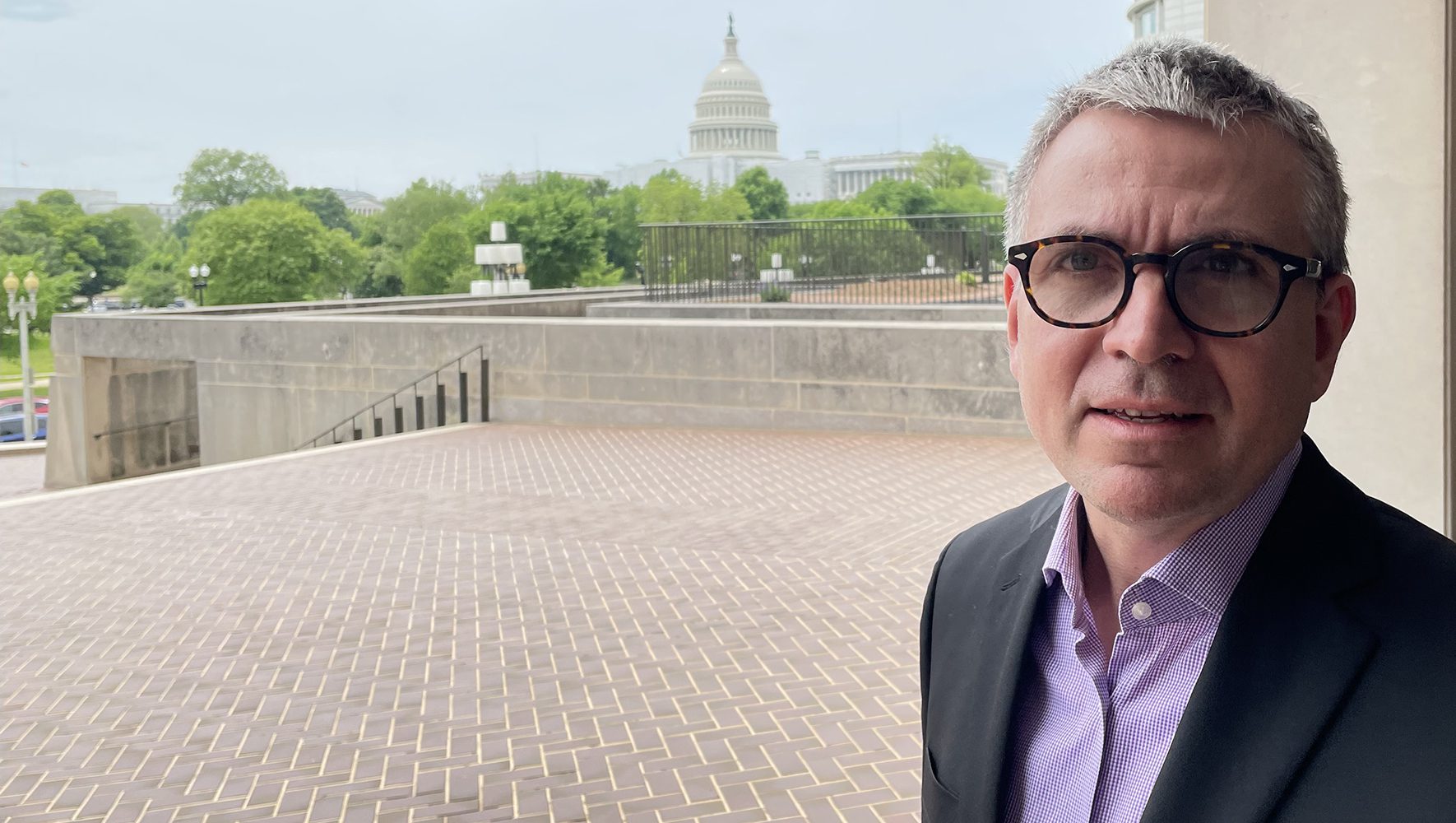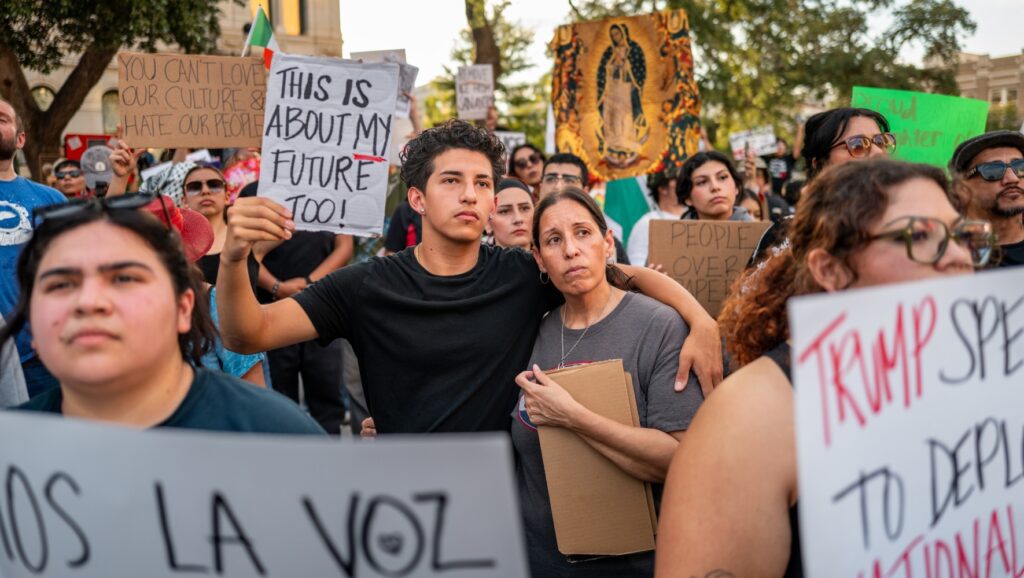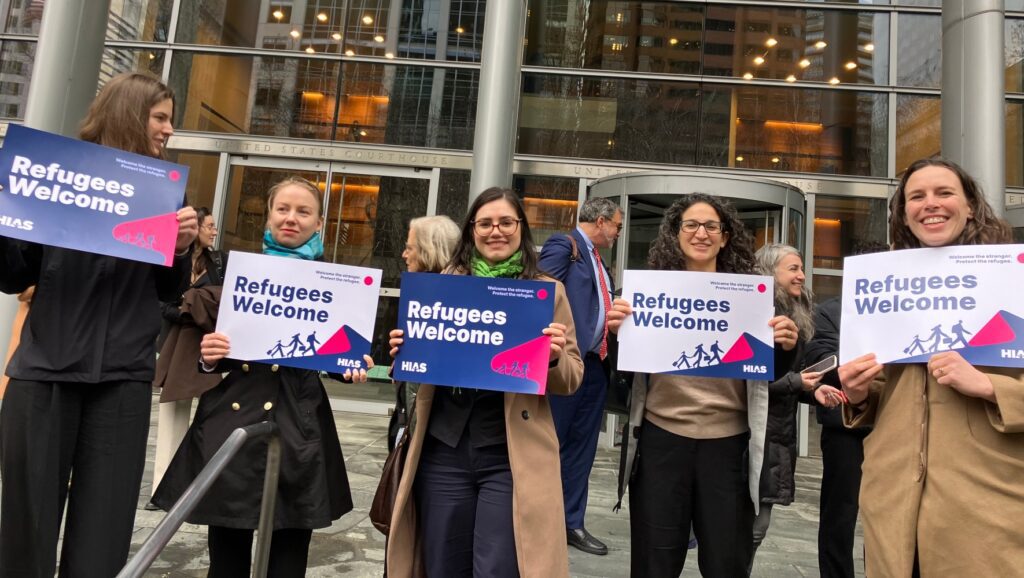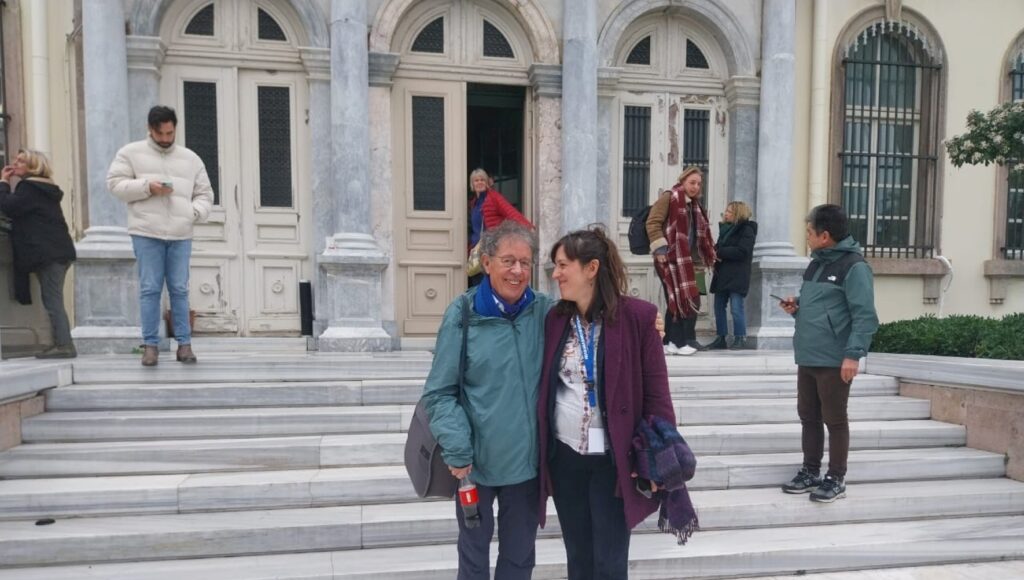
The worldwide populations of refugees and displaced people continue to reach new highs. These people face extraordinary challenges due to factors such as war, climate change, and xenophobia. Their plights and movements have increasingly become a major political issue around the world. HIAS is the oldest refugee resettlement organization in the world and has provided critical services to millions of refugees and displaced people globally for over a century. In order to leverage this experience and create an intellectual hub for research and policy analysis, HIAS is launching the Center for Refugee Policy. The Center’s mission is to produce knowledge, ideas, and recommendations to educate and advise policymakers and other stakeholders on issues affecting refugees and displaced people worldwide.
On the eve of the Center’s official launch, we spoke to the center’s director, Guillermo Cantor.
Why is now such an opportune time to launch a policy center devoted to refugee issues?
I would say there are both external and internal factors. First, the status of forced displacement around the world has never been worse. There are more than 100 million forcibly displaced people globally. Some of them have fled from armed conflicts or violence. Others have been persecuted because of who they are or what they believe. And, at the same time, there are very few places willing to protect and welcome them. As a result, many displaced people lose their lives while making treacherous journeys and never reach safety, and many of those who do reach safe lands endure a precarious legal status and are afraid of being returned to their home countries.
Access to legal protection is one among many challenges facing this population. Forcibly displaced people need to rebuild their lives after going through traumatic circumstances. They need to find financial resources to support themselves and their families, secure a place to live, in many cases, learn a new language and send their kids to school. Within this context, HIAS created the Center for Refugee Policy to help fill a critical gap: the need for evidence-based and beneficiary-focused policy solutions that lead to measurable impact in refugees’ lives.
For HIAS, launching the Center is one more step in a process of transformation and growth we’ve experienced as an organization over the past few years. We now have offices in more than 20 countries and serve more than a million refugees and displaced populations annually. That gives us unique insight into the protection and integration challenges that these populations are facing. One of the reasons for establishing the Center is to be able to more effectively leverage our on-the-ground expertise and direct access to information. Our ultimate goal is to be able to produce and communicate workable evidence-based policy recommendations that have real impact.
What do you see as the principal gaps in knowledge and understanding on refugee issues?
I think we need to understand that while some of the problems that relate to forced displacement are systemic and broad — for example, who is and who is not covered by existing legal frameworks or the degree to which receiving countries are willing to commit to welcoming refugees or offering fair processes to asylum seekers — the circumstances and realities of different groups of refugees and other forcibly displaced people are different and require tailored solutions. One of our priorities is to center the perspective of refugees and other forcibly displaced people in the work we do. It is our commitment to ensure that both our understanding of the issues pertaining to displaced populations, as well as the policy recommendations that stem from the research we publish, reflect the voices and priorities of those who are directly affected by displacement.
One of our priorities is to center the perspective of refugees and other forcibly displaced people in the work we do.Guillermo Cantor, director of the HIAS Center for Refugee Policy
What would you describe as the Center’s uniqueness? What differentiates it from other think tanks?
I think what makes us unique is who we are. HIAS is an organization with a very rich history in this space. We have played a critical role providing safety and protection to the world’s most vulnerable refugees for more than 100 years. Since the turn of the 21st century, HIAS has advocated for and advanced the rights of refugees of all backgrounds. And HIAS’ existing programs around the world have had a measurable impact on people’s lives. This makes HIAS an organization with established credibility.
Through our work in the United States and countries across Latin America, Africa, Europe, and the Middle East, we have existing relationships of trust in affected communities, which allows us to access the most nuanced information. We are uniquely positioned to learn first-hand about the challenges confronting displaced populations and to provide evidence-based alternatives for policy makers to consider.

Guillermo Cantor, director of the HIAS Center for Refugee Policy
How did you decide to focus your career on refugee policy issues?
I don’t think I can pinpoint a specific moment or factor. I’ve always been captivated by the stories of people who found migration as a path to survival and how, despite facing enormous challenges, they were able to rebuild their lives. I am sure my family history and my own upbringing played a role. I grew up hearing the stories of my grandparents and great-grandparents who had fled antisemitism and armed conflict in what was then the Russian Empire, or extreme poverty in other parts of Europe. They migrated to Argentina with no resources, not knowing anyone or speaking the language, and over time they were able to rebuild their lives. They had always been very grateful for the opportunities and stability they found in Argentina. Ironically, growing up I also got to observe first-hand the opposite side, how a country can become unwelcoming and threatening. I was raised in Argentina under a dictatorship, in a context in which many people were persecuted, kidnapped, exiled, or murdered by government authorities.
As a sociologist, I am particularly sensitive to the multiple ways in which social context shapes our life chances. Since early on in my career, I’ve been drawn to the idea of relying on social science research to promote justice and social change. And the field of migration and refugee policy is one that continues to pose numerous challenges that require a more nuanced understanding, new answers, and new ideas. Through my work I’ve had the opportunity to speak with many people who had been displaced from their home countries, listen to their stories, and try to make sense of what it might feel like to be in their shoes. I am aware of my relative privilege and feel deeply committed to them and to others who have been equally displaced. Like everyone else, they deserve the opportunity to live safe, stable, and prosperous lives.
What are your goals for the policy center?
In the short term, my goal is to get the center established. And by that, I mean building a team, establishing effective mechanisms to coordinate with colleagues doing work on the ground so that we can monitor and analyze issues in real time, building new partnerships, and developing a timely policy research agenda. But, my ultimate goal is for the HIAS’ Center for Refugee Policy to become a go-to source for reliable information and analysis on a range of refugee policy issues, a trusted voice in the public debate, and an agent for change. In this regard, our priority is to not only help shape the conversation, but also to ultimately advance policy solutions that are meaningful to those directly affected by displacement and have a concrete impact in their lives.



